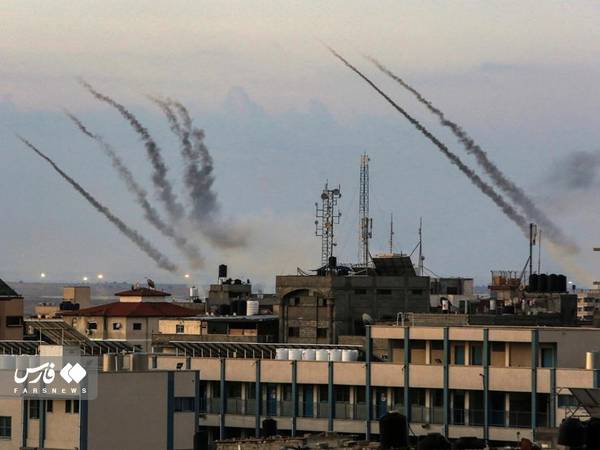Hamas' 7/10 invasion and terror attack on Israel, akin to Egypt's 1973 October surprise, shall be remembered as a most infamous day in Arab-Israeli conflict.
In the wake of the attack, experts have scrambled to account for the failure in Israeli intelligence. The answer seems to be hiding in plain sight: the IDF and intelligence is overtaxed and overworked. Hamas’ patron, Iran, has escalated its anti-Israeli intelligence and sabotage plots over the past seven months to an unprecedented scale. Indeed, on September 11, 2023, Israel’s intelligence chief announced their success in thwarting twenty-seven attacks planned by Iran against Israeli citizens and Jews around the world. He further warned Iran that should the attacks persist, Israel would retaliate directly against the main culprits of the attacks in Tehran.
The escalation in planned attacks over the past seven months correspond to the amount of time roughly needed to plan the 7/10 invasion. Whether these planned attacks were meant to distract Israeli forces is unknown. However, thwarting twenty-seven attacks certainly drained a lot of intelligence resources.
Now, on the second day after the attack, Biden administration officials announced on CNN that Iran was directly involved in Hamas’ ruthless mass carnage in Israel.
Asymmetrical surprise attacks on Israel are not unprecedented. Palestinians had previously infiltrated Israel with gliders once before in November 1987, and no doubt Hamas leaders used “the Night of the Gliders” as a template. Israel swiftly launched retaliatory attacks and an incursion of a magnificent scale is only days away.
Since its founding in 1979, the Tehran regime has made no friends but rogue actors (Syria and Libya) in the region. It has vowed to destroy Israel as an article of faith and export its revolution to other Arab states.
Hatred for Israel is quintessential to the regime’s fanatical character, even more than its disgust for the region’s Arab states. The Mullahs in Tehran have acted as patrons to the Lebanese Hezbollah and Palestinian militants (Islamic Jihad and Hamas) by supplying them with missiles to attack Israel over the past twenty years, prompting Israel to oblige in kind.
Avowing Israel’s destruction, the Iranian regime has also sought to gain all the needed material for possible nuclear weapons production. Israel has bludgeoned the Iranian nuclear program with debilitating attacks deep inside Iran, as well as surgical strikes against Hezbollah and the Iranian Islamic Revolutionary Corps (IRGC) in Syria. Waging a proxy war with Saudi Arabia and UAE in Yemen since 2015, the Iranian regime cut ties with the Saudis over regional differences during the same period, only to renew relations in March 2023 with China’s mediation.
Tehran greeted the rapprochement of the Israel-Persian Gulf Arab states and the Abraham Accords with loathing, and finds the Saudi-Israeli rapprochement equally appalling for it could herald the establishment of the Peninsular Shield Force against Iran. As the Saudis conditioned their rapprochement with Israel on Israeli concessions to the Palestinian authority, the rapprochement would elevate the Palestinian Authority’s position eclipsing Hamas to the point of irrelevance.
Wary of the Saudi Israeli rapprochement, Hamas leaders increased their overt and covert visits to Tehran. One can only speculate what sabotage and terror operations did they concoct during these visits. Then, only four days before the attack, Iran’s supreme leader Ali Khamenei exclaimed Iran’s animosity towards the Saudi Israeli rapprochement: “The definite position of the Islamic Republic is that countries that make the gamble of normalisation with Israel will lose. They are betting on a losing horse.” Only with the benefit of hindsight can we now decipher Khamenei’s words as a prayer to derail Saudi Israeli rapprochement, signalling the Hamas 7/10 attack.
From the early hours of the conflict, many observers have been quick to blame the 7/10 intelligence failure on Israel’s domestic strife over the government’s proposed judicial reforms. Some cite as evidence the letter by several ex-government security advisors to the speaker of the Knesset who warned “the lack of agreement (over judicial reforms) could undermine Israel’s security, as “the national resilience of Israeli society” has enabled the country to tackle external threats.”
However, Israel has been unrelenting in its deterrence operations.Israel’s “intelligence failure” could be equally ascribed to “alert and constant readiness fatigue” as they ever more vigorously implemented the Israeli deterrence doctrine. But to attribute the “intelligence failure” to domestic Israeli peaceful protests over the judicial reforms grossly underestimates the undisputed track record of the Israeli intelligence and security services and the IDF. After all, Israel has been ruled by right-wing coalition governments over the past twenty years along a consistent national security doctrine.
As Israel continues to wage its deterrence war against Iran, the burden of its task has overwhelmed its resources. The last word on the intelligence failure must be left to the aegis of Israeli parliamentary democracy, military, and security echelons as Israel persists as determined as ever.
